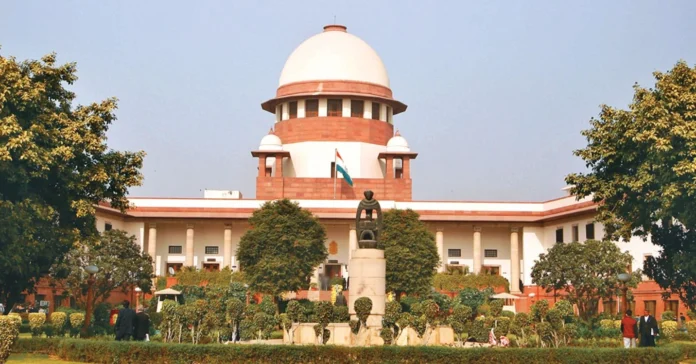The Supreme Court has raised pointed questions to the Union government in connection with Balwant Singh Rajoana’s plea for commutation of his death sentence, asking why the convict has remained on death row for so many years without his sentence being carried out. A bench comprising Justices Vikram Nath, Sandeep Mehta, and N.V. Anjaria took up the matter on September 24, 2025, and indicated that the Centre’s inaction could not be overlooked, especially when a convict’s fundamental rights are at stake.
Rajoana, a former Punjab Police constable, was convicted for his involvement in the 1995 assassination of then Punjab Chief Minister Beant Singh through a suicide bombing in Chandigarh. A special CBI court found him guilty in 2007 on charges of conspiracy, murder, and use of explosives, sentencing him to death. Unlike most convicts, Rajoana did not challenge the verdict in appeal, but in 2012, a mercy petition was submitted to the President of India on his behalf. That petition remains pending more than a decade later.
During the hearing, Senior Advocate Mukul Rohatgi, appearing for Rajoana, argued that keeping a prisoner under the shadow of the gallows for over 15 years amounts to cruel and degrading treatment and violates the right to life under Article 21 of the Constitution. Rohatgi highlighted precedents such as the Devinder Pal Singh Bhullar case, where a death sentence was commuted to life imprisonment due to prolonged delay and concerns over the convict’s mental health. He urged the Court to adopt the same reasoning in Rajoana’s case.
The Supreme Court, while acknowledging the gravity of the crime that shook the nation, pressed the government to explain its indecision. Justice Nath bluntly asked the Centre, “Why did you not hang him till now? Who is responsible for this delay?” The bench remarked that the seriousness of an offence cannot justify keeping a convict in perpetual uncertainty, and that prolonged executive inaction risks eroding both the credibility of the justice system and the dignity of the individual awaiting a final decision.
Representing the Union government, Additional Solicitor General K.M. Nataraj requested additional time to file a status report on the mercy petition and the government’s position. The Court, however, insisted that the matter would proceed on October 15, 2025, without any further adjournments on account of the Centre’s delays.
The Supreme Court has previously noted that clemency powers under Articles 72 and 161 must be exercised in a timely manner, as unreasonable delay in deciding mercy petitions can form independent grounds for commuting death sentences. In earlier rulings, the Court had directed the Centre to act on Rajoana’s petition within a set time frame, but those directives were never fully implemented.
At this stage, the Court has not delivered a ruling on whether Rajoana’s sentence will be commuted, but it is closely examining whether the prolonged pendency of his mercy plea constitutes a violation of constitutional safeguards. The larger constitutional issue is whether the State can keep a person on death row indefinitely without either carrying out the sentence or granting clemency, and whether such delay amounts to punishment beyond what the law permits.


